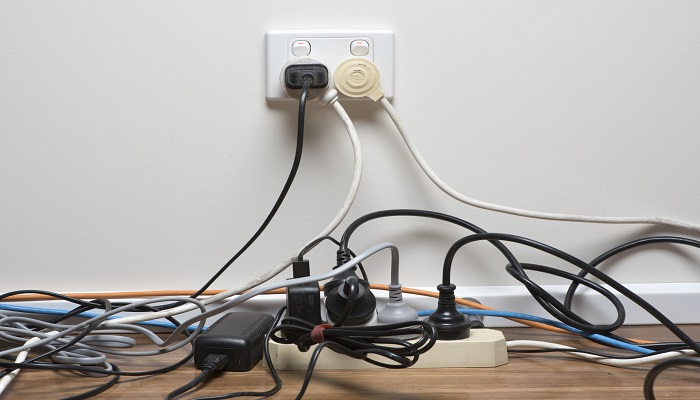
With our current dependency on electricity, any house, workplace, or industry may pose an electrical safety danger. Fortunately, these threats may be avoided or reduced by remaining vigilant and adopting appropriate precautions, ideally with the aid of an electrician.
These are the eight most electrical severe risks that might occur in any home.
Safety must have high-quality wiring that meets safety regulations. Poor wiring can raise the risk of fire, electrical surges, arc faults, and other catastrophic events. As a result, it's always preferable to avoid do-it-yourself electrical work and use expert electricians to install electrical wiring throughout the home.
Electrical cables that are damaged, worn, broken, or corroded might increase the risk of an electrical accident. Check your wiring regularly with a competent electrician to verify it is safe. Upgrade and replace old and broken cables as needed.
Among the dangers are:
Water outlets in bathrooms, kitchens and other living areas should be situated far from the water supply. Because water conducts electricity, keeping outlets away from it lowers the risk of electric shock.
Never use a radio, hairdryer, phone, or another gadget in the bathroom, near a pool, or anyplace there is a damp floor.
Similarly, electrical equipment should never be handled with damp hands, increasing the risk of receiving an electric shock. Yet, with wet hands from the shower, far too many of us go for the hairdryer. Appliances should be kept away from sinks, bathtubs, showers, and faucets.
Pouring water on electrical fires is a typical mistake. If an electrical fire occurs, do not throw water on the flames since this will fuel the fire and result in electrocution. If you're concerned about electrical fires, keep a fire extinguisher on hand and use it instead of water in an emergency. If you don't have one nearby, cut off the electricity, exit your home, and call the fire department.
Young newborns and toddlers are naturally curious and eager to explore their surroundings. While it is usually desirable to keep children of this age under constant supervision, parents and individuals expecting children at their homes should take extra precautions to protect small children.
EXTRA-SAFE powerpoints can be installed in any electrical outlet that is within their reach and at their height. These may be used in standard powerpoint and prevent sharp objects and fingers from entering the socket. Unprotected sockets can cause considerable harm.
To limit the possibility of tripping or an accident, extension cables should be secured appropriately in position whenever feasible. On empty sockets, use plastic socket closures. Don't use extension cables as a permanent alternative for more power outlets, and don't plug in too many appliances at once.
We don't commonly consider lightbulbs to be electrical risks, yet there is a risk of an electrical fire being kept near combustible objects. Beds, draperies, plastics, and other products such as upholstery are examples of them.
Like all other sources of electricity, lights can cause electric shock, therefore always turn off the light switch before replacing a light bulb, and never replace a light bulb or touch a light switch with damp hands. To avoid overheating, always use the appropriate wattage light bulb.
Heavy wire wrapping can cause the cables to overheat, perhaps resulting in an electrical fire. Keep cords and wires away from other things and expose them.
Similarly, make sure that objects such as laptops and televisions have enough room around them for airflow to avoid overheating.
Installing a safety switch, also known as a residual current device, is one of the most significant ways to limit the danger of death from electric shock in your house (RCD). However, it would help if you never attempted to undertake any electrical work on your own. If you believe there are risks in your home, contact a certified electrician to assist you in resolving them.
 Call Now
Call Now